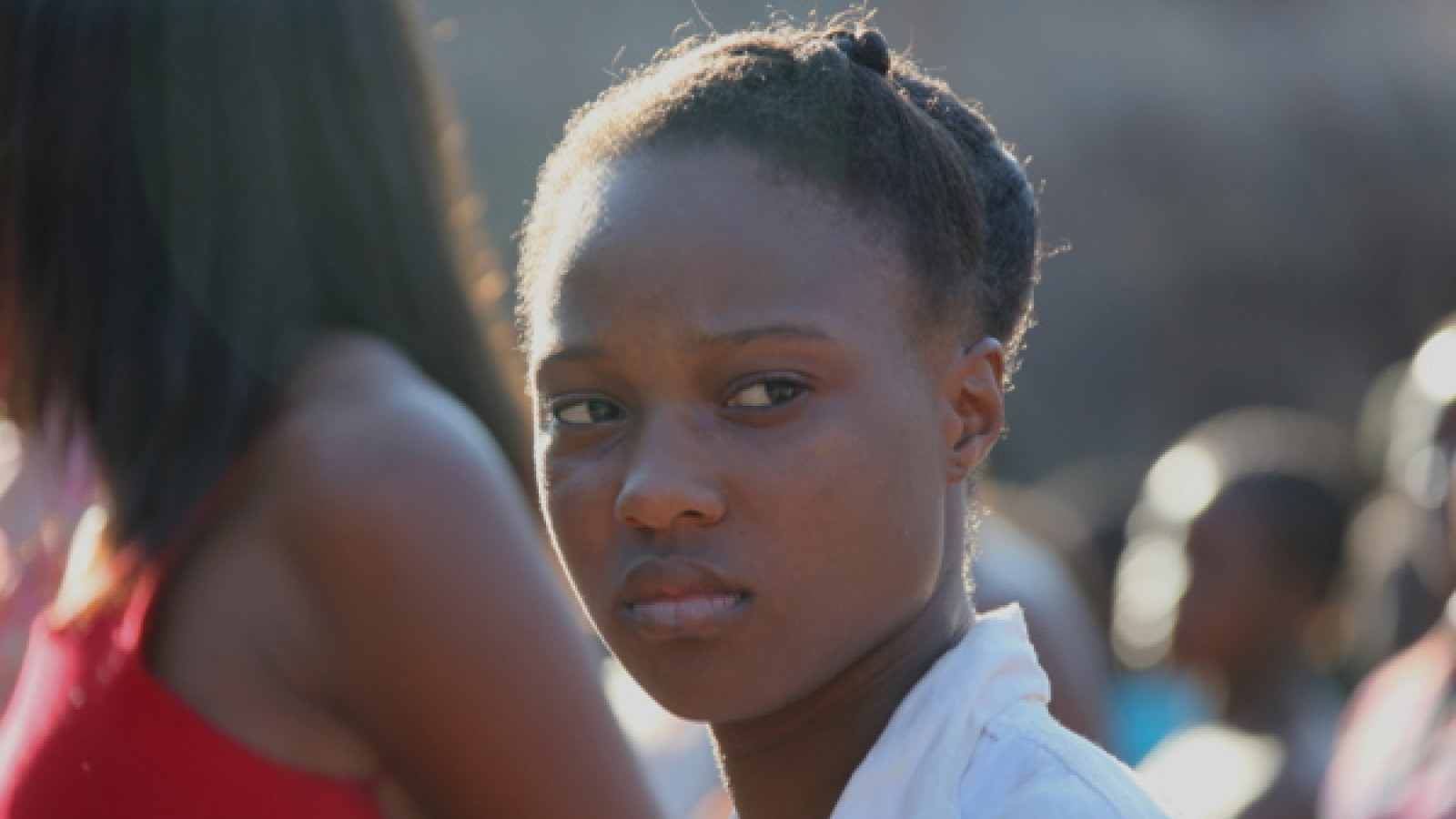By Chlotrudis Independent Film Society
Rating: 5 cats
Director: Licinio Azevedo
Starring: Ana Maria Albino | Ermelinda Cimela | Ilda Gonzales | Iva Mugalela | Rosa Mario | Sumeia Maculuva

Original language title: Virgem Margarida
Country: france, mozambique, portugal
Year: 2012
Running time: 90
IMDB: http://www.imdb.com/title/tt2381180/
Bruce says: “Three of my Toronto International Film Festival films in 2012 were selected based on a single criterion, that I had never before seen a film from its country. Those countries were Angola, Guatemala and Mozambique.
“When Soviet-backed bush territory rebels liberated Mozambique from four hundred years of colonial rule in 1974, there was great cause to rejoice. When rebels reached the cities, people hit the streets and danced for joy. Some of the first to celebrate were the prostitutes. The rebel army was governed by different standards than city folk. When they saw the prostitutes being openly demonstrative, they rounded them up and carted them off to concentration camps which they called Re-education Centers. VIRGIN MARGARIDA is the story of those camps and told with emphasis on four women in particular: Susana (Rosa Mario), Rosa (Iva Mugalela), Margarida (Sumeia Maculuva) and Lisa (Ana Maria Albino).
“It should not be surprising that the rebel forces had never seen prostitutes before arriving in the cities and therefore had no notion of what visual clues to look for to determine who was and who wasn’t a ‘wicked woman.’ As the story unfolds two of the four main characters are cases of mistaken identity. Susana, a single mom with two small children, is a dancer in a nightclub. She was apprehended on her way home after the last show. The other, Margarida, is a teenager who was shopping with her aunt for her trousseau. Margarida is a virgin.
“The rebel army doesn’t pay much attention to detail or care if they have made mistakes. The job of heading the re-education operation is given to Maria João (Ermelinda Cimela), a female officer. She is engaged and is anxious to leave the post to go home and marry. She, however, takes her job seriously and is the equal of any odious male counterpart when it comes to treating others with a modicum of decency or respect. ‘You don’t know how to sweep, clean, or cook,’ she tells a group of women who are standing before her wearing cocktail dresses in bush country. The situation would be laughable if it weren’t so heartbreaking. When Maria João tells the women they are going to learn how to grow crops, Rosa yells out ‘We’re whores, not peasants.’ Soon they are wearing uniforms, building their own homes and clearing dense forests for planting crops. No one teaches them anything. Margarida, who actually is a peasant, instructs how to wield an axe, how to avoid poisonous plants and how to handle a machete. Ultimately the women also learn how to revolt and liberate themselves.
“Sadly, not all survived. Many returned to find their houses sold and many lost track of their families. Licinio Azevedo is a documentary filmmaker who was struck by the stories of these women. For many years he felt their story should be told as a narrative film. It was worth the wait. 5 cats”
